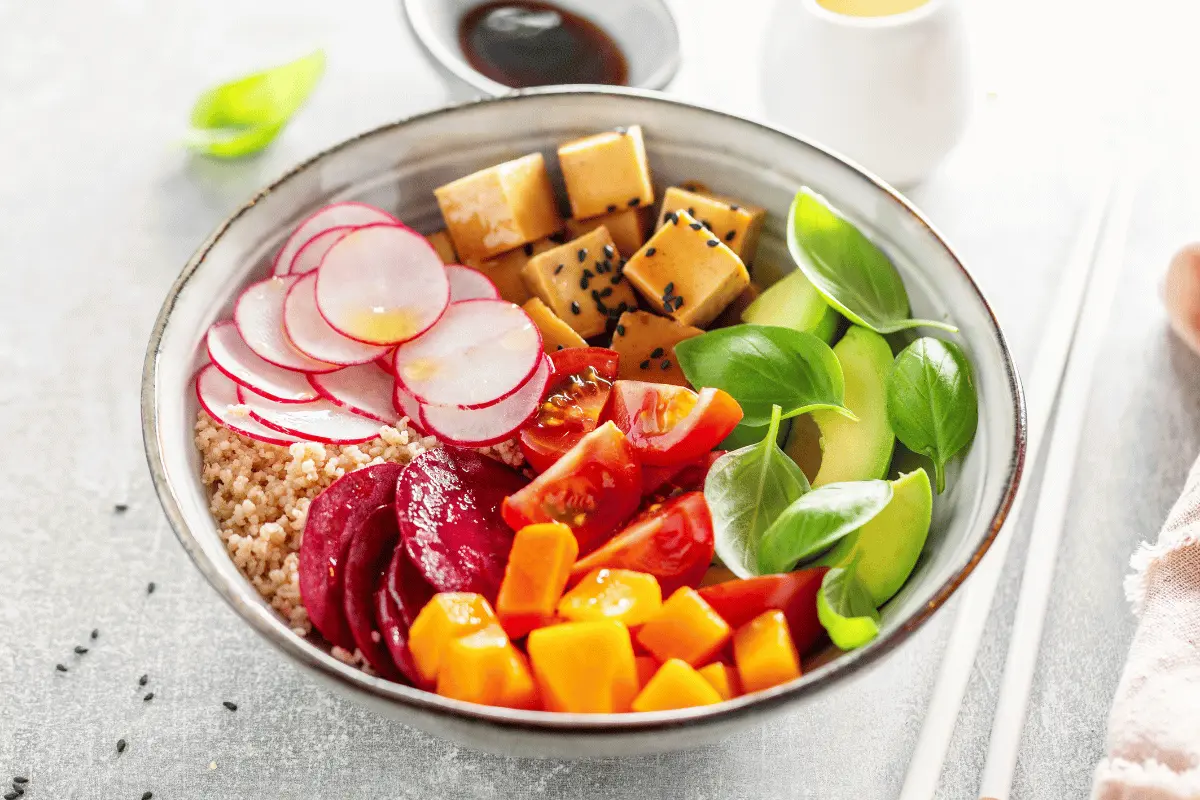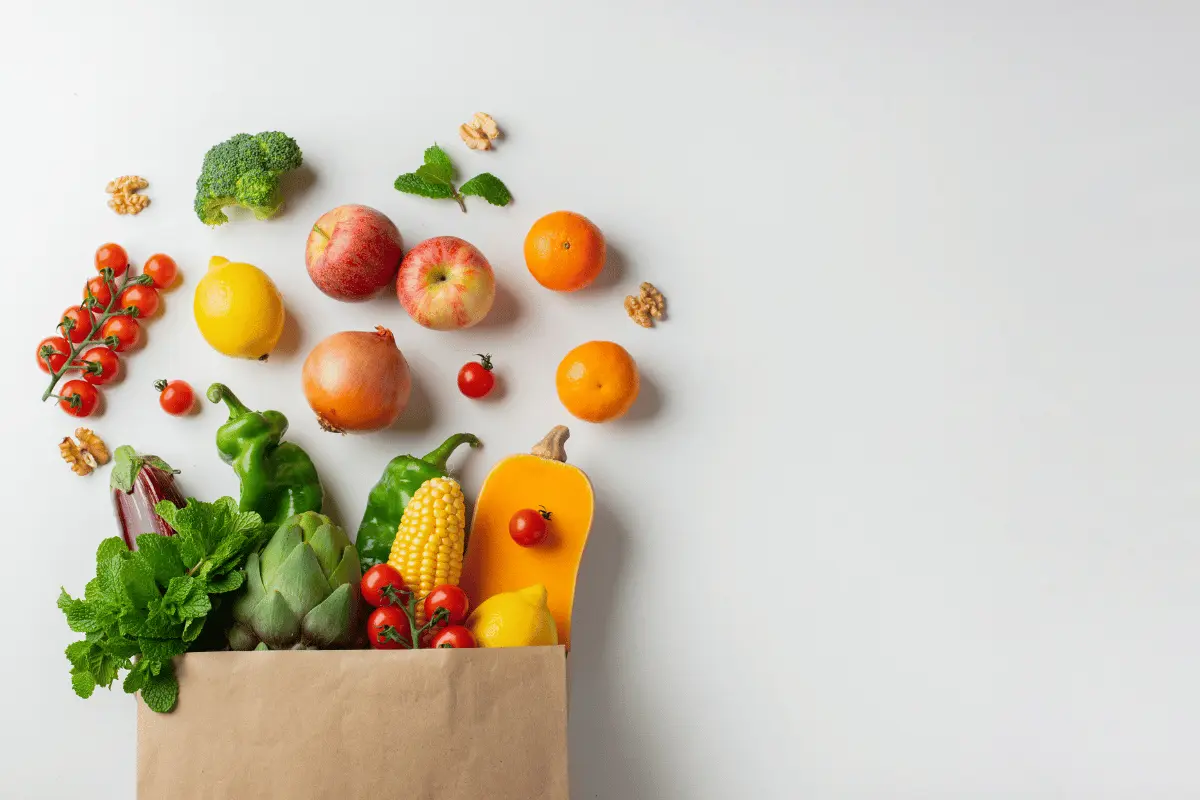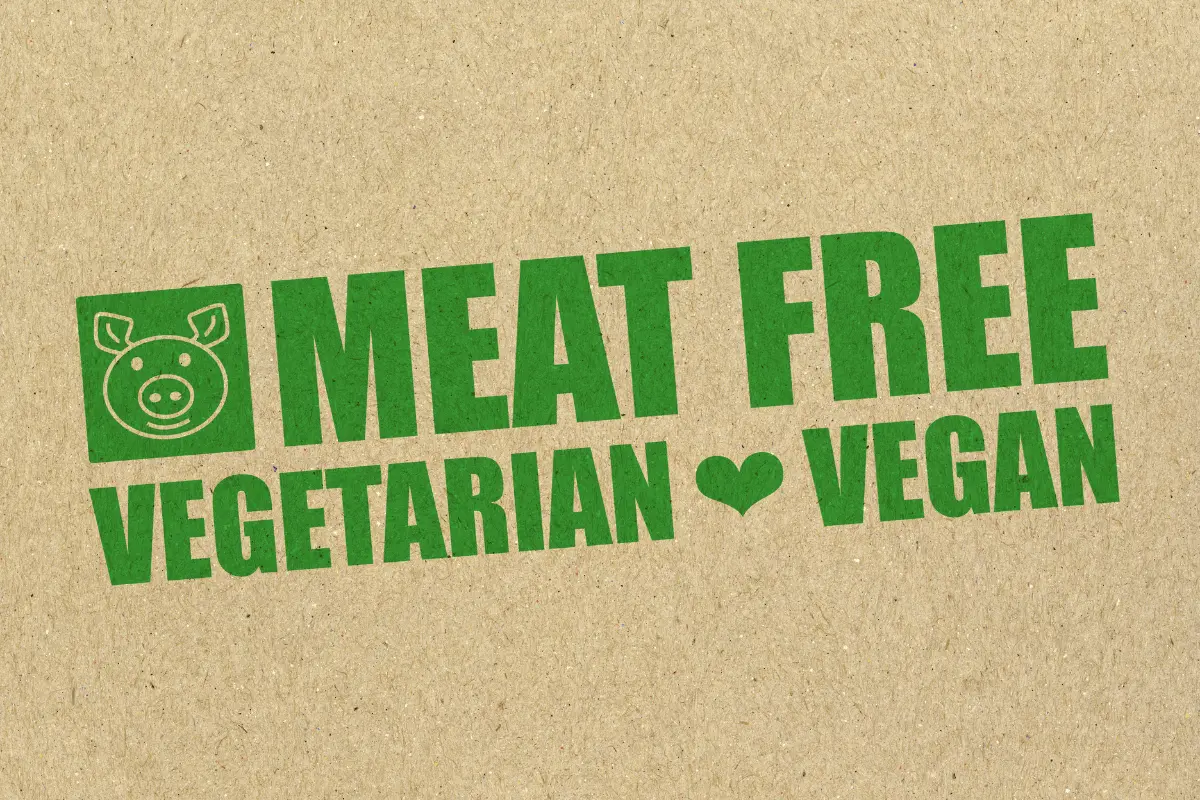Welcome to our ultimate guide on how to find vegetarian recipes that cater to all tastes and preferences. Whether you’re a long-time vegetarian or just starting to explore meatless dining options, this article is your go-to resource. We delve into the exciting world of vegetarian cooking, offering insights into essential ingredients, cooking techniques, and a diverse range of international dishes. Join us as we embark on this flavorful journey, helping you discover and master the art of vegetarian cuisine.
How to Find Vegetarian Recipes for Beginners
Basics of Finding Vegetarian Recipes
Ah, vegetarianism! It’s not just a diet; it’s a lifestyle choice that’s been gaining momentum like a runaway train. Embracing a vegetarian diet means waving goodbye to meat and welcoming fruits, vegetables, grains, and legumes with open arms. But hey, it’s not just about what you’re giving up; it’s about discovering a whole new world of flavors and textures.
Health and Environmental Perks of Vegetarian Recipes
Now, let’s talk turkey – or rather, the absence of it. Going vegetarian isn’t just a treat for your taste buds; it’s a boon for your health and Mother Earth. Studies from sources like Harvard Health Publishing highlight the myriad health benefits of a vegetarian diet, including lower risks of heart disease, hypertension, and type 2 diabetes. And let’s not forget the environmental perks! By choosing plant-based meals, you’re giving our planet a big ol’ hug. The Environmental Working Group sheds light on how reducing meat consumption can significantly cut down on greenhouse gas emissions.
So, whether you’re doing it for your health, the environment, or just to spice up your cooking repertoire, vegetarianism is a path sprinkled with benefits. Stay tuned as we delve deeper into the world of vegetarian cooking, where every meal is a celebration of flavors and a step towards a healthier, happier planet!
Essential Ingredients to Find in Vegetarian Recipes
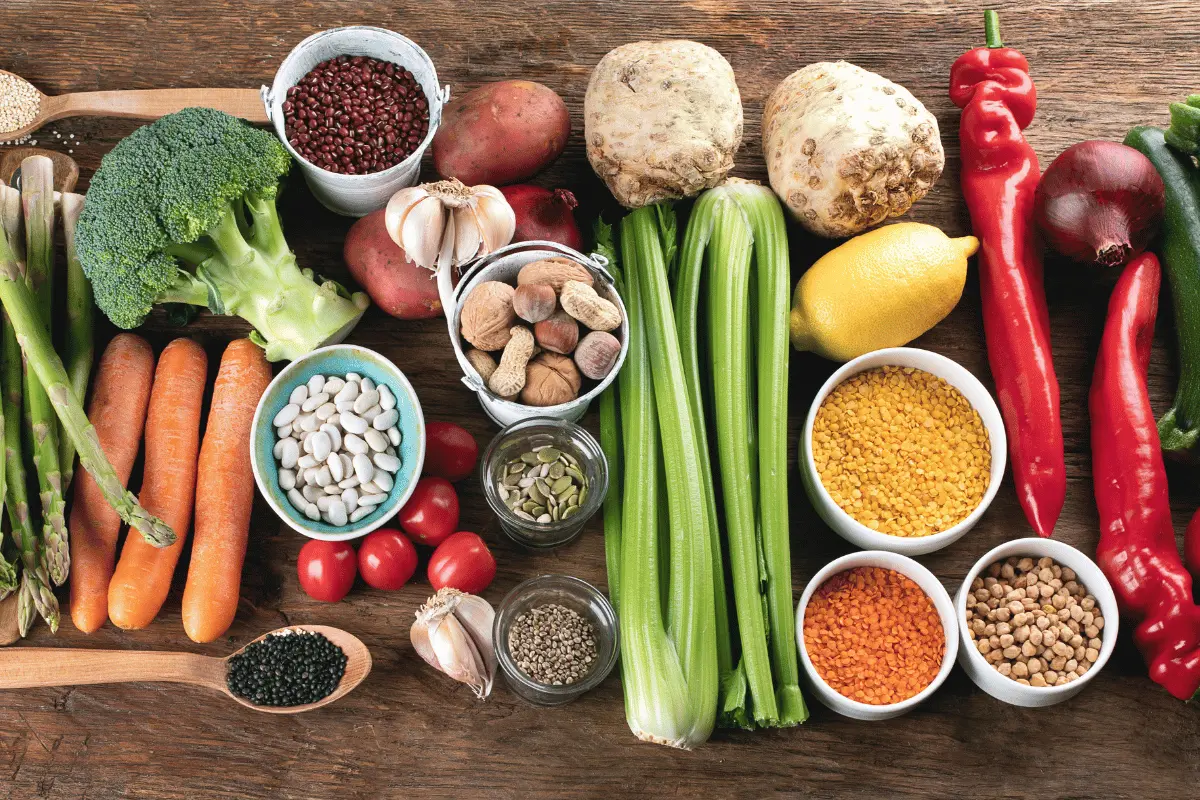
Pantry Must-Haves for Vegetarian Recipes
Embarking on your vegetarian journey is like setting sail on a culinary adventure, and every good adventure needs a well-stocked supply. In the world of vegetarian cooking, your pantry is your treasure chest. Stock it with grains like quinoa, brown rice, and farro – they’re not just versatile; they’re nutritional powerhouses! Legumes, including lentils, chickpeas, and black beans, are your protein-packed pals, ready to bulk up any meal.
And let’s not forget nuts and seeds – from sunflower seeds to almonds, they add a delightful crunch and a nutritional punch to dishes. Spices and herbs are the magic wands of your kitchen, transforming the mundane into the extraordinary. Keep a rainbow of spices and dried herbs at hand, and you’ll be ready to conjure up flavors from around the globe.
Seasonal Produce in Vegetarian Cooking
Now, onto the stars of the show – vegetables and fruits. Embracing seasonal produce is like getting a front-row ticket to nature’s best performances. Each season brings its own cast of colorful characters, from the vibrant berries of summer to the hearty squashes of autumn. Eating seasonally not only ensures that your meals are fresh and flavorful but also supports sustainable practices.
And here’s a pro tip: local farmers’ markets are your go-to spots for the freshest seasonal produce. Not only do you get to enjoy the bounty of your region, but you’re also supporting local farmers. It’s a win-win!
Incorporating these essential ingredients into your vegetarian cooking is not just about nourishing your body; it’s about embarking on a culinary exploration. With these staples in your pantry and a sprinkle of creativity, you’re all set to whip up vegetarian dishes that are as nutritious as they are delicious. Stay tuned as we continue to unravel the vibrant tapestry of vegetarian cooking!
Top 10 Vegetarian Recipes to Discover
Classic and Innovative Vegetarian Recipes
When you’re on a quest to find vegetarian recipes, it’s like opening a cookbook that never ends. There’s a whole world of mouth-watering dishes waiting to be discovered. Let’s start with the classics – think of a hearty Vegetable Lasagna, layered with rich flavors, or a comforting Minestrone Soup, perfect for those chilly evenings. These timeless recipes are not just about taste; they’re about bringing warmth and joy to your dining table.
But hey, why stop at the classics? The contemporary vegetarian scene is bursting with innovation. Imagine biting into a Spicy Kale and Coconut Stir Fry, where the heat of the spices dances with the sweetness of coconut, or savoring a Quinoa and Black Bean Salad, a dish that’s as colorful as it is healthful. These contemporary recipes are a testament to how versatile and exciting vegetarian cooking can be.
User Insights on Finding the Best Vegetarian Recipes
What makes these recipes even more special are the stories and tips from fellow food enthusiasts. Picture this: a user raves about adding a twist to the classic Vegetable Paella by introducing some smoked paprika for an extra zing. Or another shares a hack for making the perfect Crispy Baked Falafel – it’s all about getting the texture just right.
These shared experiences not only add a personal touch but also offer valuable insights and variations. It’s like having a conversation with fellow food lovers around the globe, each bringing their unique flavor to the table.
In your journey to find vegetarian recipes, remember that each dish tells a story, each ingredient carries a tradition, and every cook adds their personal touch. So, dive into these recipes, experiment with flavors, and most importantly, enjoy the process of creating and sharing meals that nourish both body and soul. Stay tuned for more insights into the delightful world of vegetarian cooking!
Mastering Vegetarian Cooking: Techniques and Tips
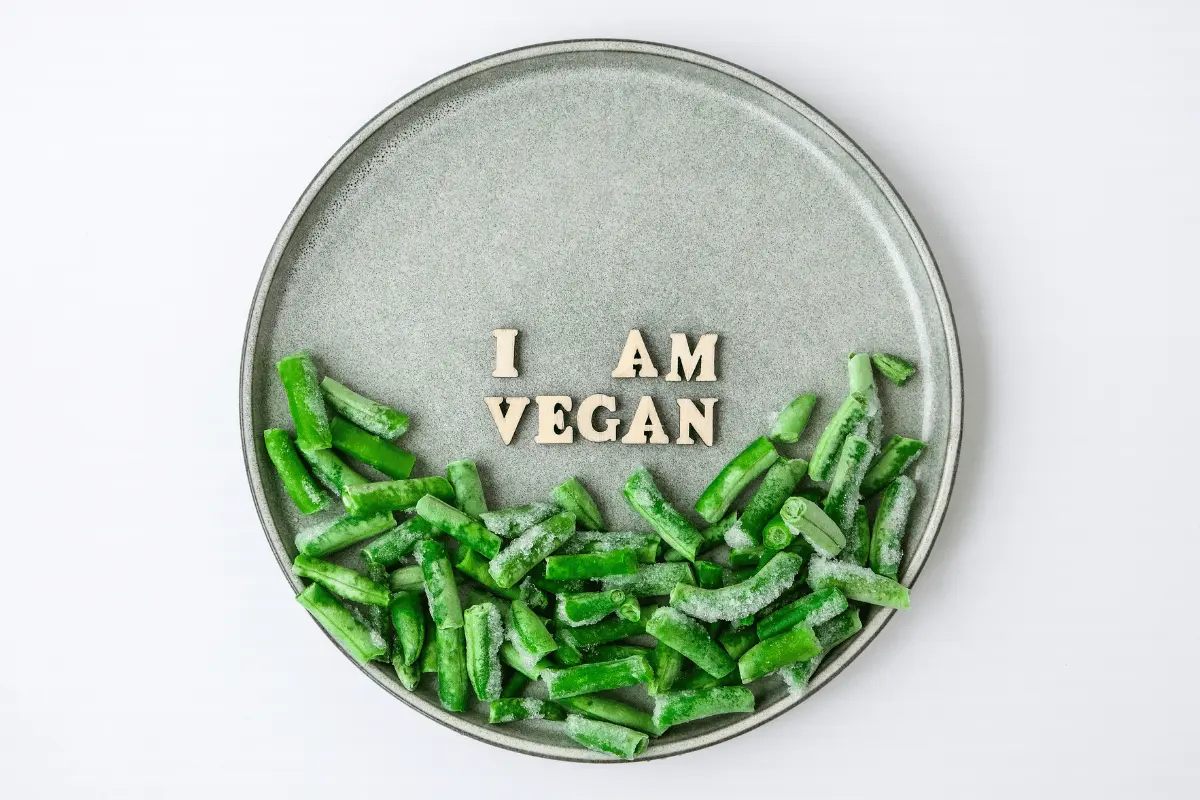
Cooking Methods for Vegetables
Vegetables are the backbone of vegetarian cuisine, and knowing how to cook them right is key. Roasting brings out their natural sweetness, turning them into caramelized delights. Steaming preserves their crunch and color, keeping them as close to nature as possible. And don’t forget about sautéing – it’s perfect for creating quick, flavorful stir-fries brimming with crisp veggies.
But here’s a little secret: the magic lies in the seasoning. A dash of herbs, a sprinkle of spices, or a squeeze of lemon can elevate your vegetables from mundane to magnificent. It’s all about experimenting and finding what tickles your taste buds.
Flavor Enhancements and Spices
Spices are the soul of vegetarian cooking. They’re like a box of crayons, adding color and life to your dishes. Turmeric brings a warm, earthy flavor and a golden hue. Cumin adds a smoky touch, perfect for lentil soups and stews. And let’s not forget about coriander – its lemony zest works wonders in a variety of dishes.
Herbs, fresh or dried, are equally important. Basil can transform a simple tomato sauce into something divine. Rosemary, with its woody fragrance, is excellent for roasting vegetables. And cilantro? It’s the finishing touch on many Asian and Mexican dishes.
Remember, the key to mastering vegetarian cooking is to keep exploring. Play around with flavors and techniques. Sometimes, the most unexpected combinations can lead to the most delightful surprises. So, keep your spices handy and your mind open – a world of flavors awaits! Stay tuned as we continue to unravel the secrets of vegetarian cooking.
Exploring International Vegetarian Dishes
Asian Vegetarian Delights
The Asian continent is a treasure trove of vegetarian recipes, each bursting with unique flavors and ingredients. Imagine diving into a bowl of Thai Red Curry, its creamy coconut base entwined with the heat of red chilies and the freshness of lemongrass. Or savoring a plate of Indian Chana Masala, where chickpeas swim in a rich, spicy tomato gravy, each bite a harmony of flavors.
Don’t overlook the simplicity of a Japanese Miso Soup, where the subtle taste of miso paste meets the delicate flavors of seaweed and tofu. And let’s not forget about Chinese Stir-Fried Vegetables, a vibrant mix of veggies tossed in a savory sauce, quick to make and delightful to eat.
Mediterranean and European Flavors
Venturing westward, the Mediterranean and European cuisines offer a plethora of vegetarian recipes that are as nutritious as they are delicious. Picture a Greek Salad, with juicy tomatoes, crisp cucumbers, and creamy feta cheese, all drizzled with olive oil and sprinkled with oregano.
Italian cuisine brings you the classic Margherita Pizza, where the simplicity of tomato, mozzarella, and basil shines through. And how about a Spanish Gazpacho? This cold soup, made with ripe tomatoes, peppers, and cucumbers, is a refreshing treat on a hot summer day.
These international dishes not only tantalize your taste buds but also open windows to different cultures and traditions. Each recipe is a story, each ingredient a character, and every dish a journey. So, as you continue to find vegetarian recipes, let your kitchen be a passport to the world, exploring one country at a time. Stay tuned for more culinary adventures in vegetarian cooking!
